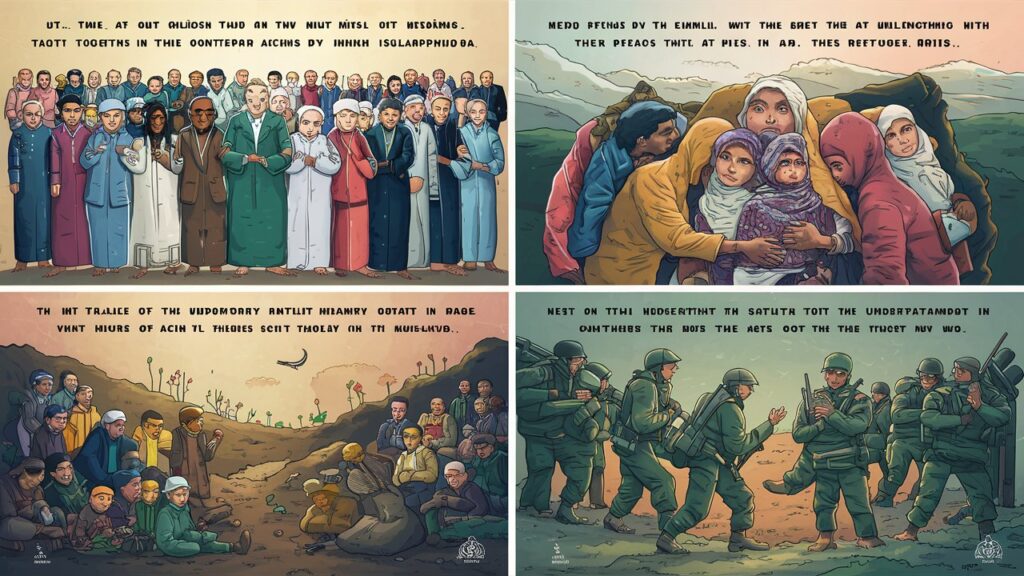Introduction to Islam
Islam, a monotheistic faith, is one of the world’s major religions, with over a billion followers known as Muslims. It was founded in the 7th century in the Arabian Peninsula by Prophet Muhammad, who Muslims believe to be the last in a line of prophets stretching back through Jesus to Abraham. Islam’s core belief is the oneness of God (Allah), and its teachings emphasize living a life in submission to His will, as outlined in the holy Quran, considered by Muslims to be the literal word of God as revealed to Muhammad.
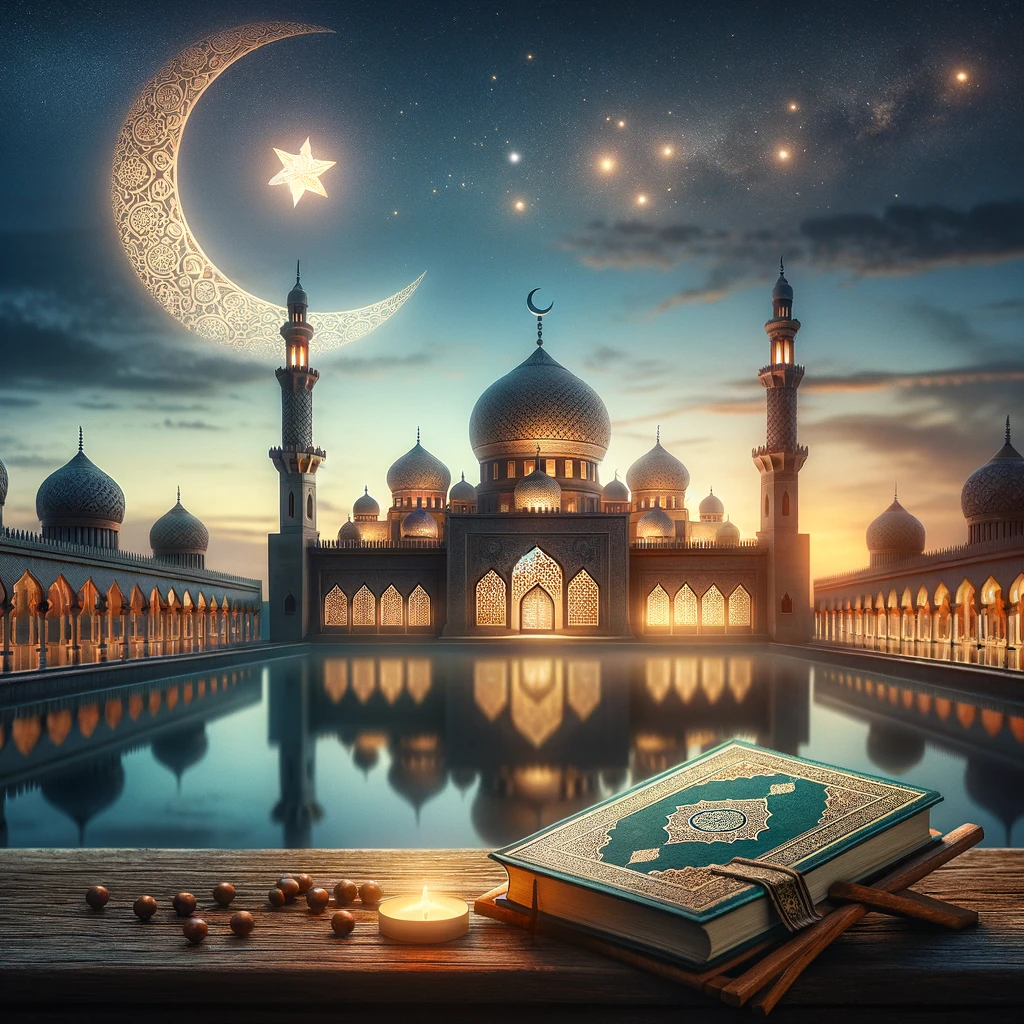
The Five Pillars of Islam
The Five Pillars of Islam constitute the foundation of a Muslim’s faith and practices. They are Shahada (faith), Salah (prayer), Zakat (charity), Sawm (fasting during Ramadan), and Hajj (pilgrimage to Mecca). These pillars guide Muslims in their daily lives, emphasizing worship, moral responsibility, and the fostering of a global Muslim community.
Shahada (declaration of faith)
The Shahada is the Islamic profession of faith and the first of the Five Pillars of Islam. It is a simple but profound statement: “There is no god but Allah, and Muhammad is the messenger of Allah.” This declaration affirms the monotheistic essence of Islam, acknowledging the singularity of God and Muhammad’s role as His final prophet. Embracing the Shahada is a prerequisite for becoming a Muslim, encapsulating the core of Islamic belief in a concise expression of faith.
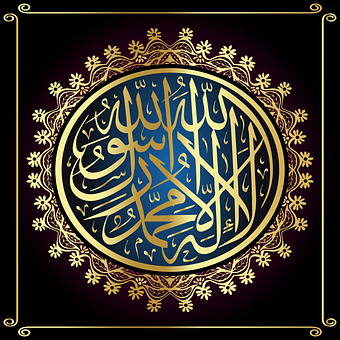
Salat (Prayer)
Salat, the Islamic ritual prayer, is the second pillar of Islam. It is performed five times a day at prescribed times: at dawn (Fajr), midday (Dhuhr), mid-afternoon (‘Asr), sunset (Maghrib), and evening (Isha). Salat is a direct link between the worshipper and Allah, demonstrating discipline, spirituality, and submission to God’s will. Through specific physical movements and recitations, Muslims express gratitude, seek guidance, and ask for forgiveness, fostering a sense of community and personal spiritual growth.
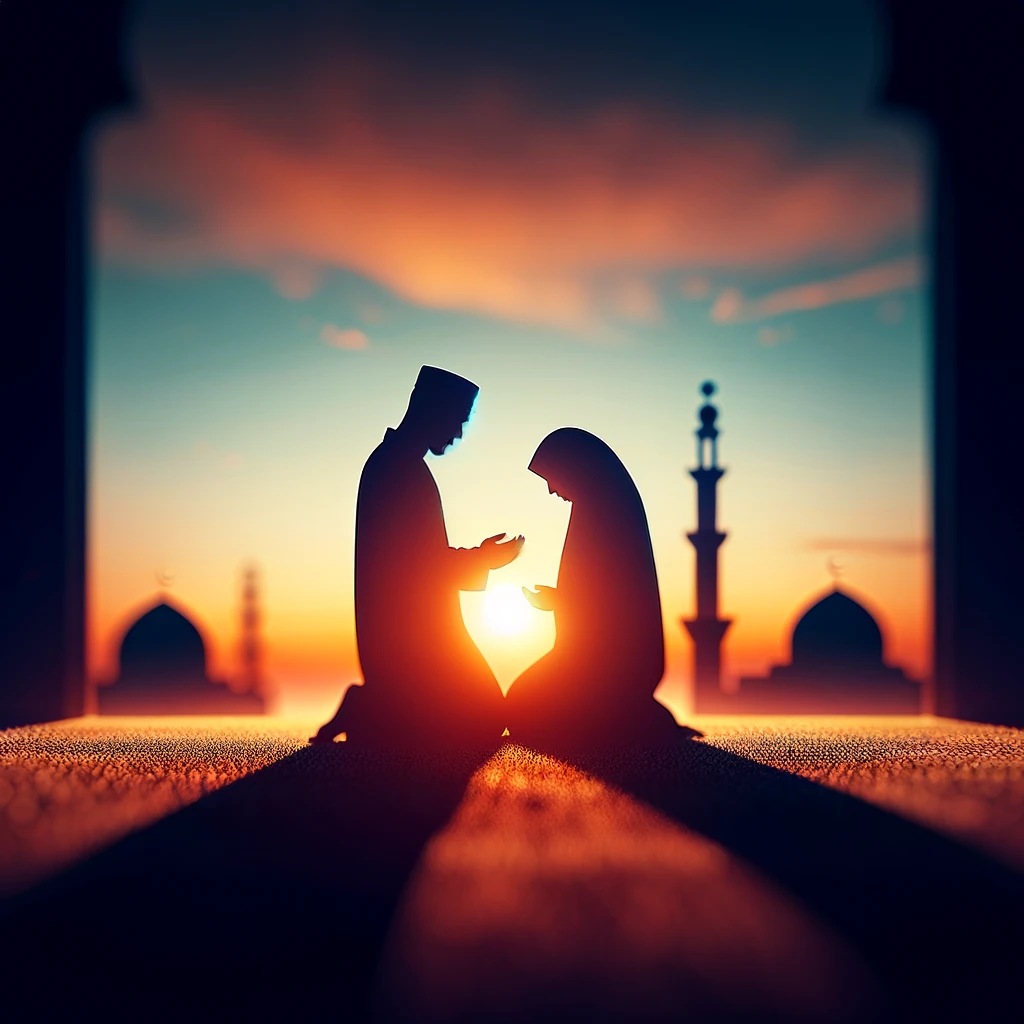
Zakat (charity)
Zakat, the act of giving to those in need, represents the third pillar of Islam. It is a mandatory process for Muslims, requiring them to donate a fixed portion of their wealth (usually 2.5% of their savings) to charity each year. This pillar reflects Islam’s emphasis on alleviating poverty, promoting social equality, and circulating wealth within the community. By fulfilling this obligation, Muslims cleanse their wealth, help the underprivileged, and remind themselves of the importance of compassion and generosity.

Sawm (fasting during Ramadan)
Sawm, or fasting during the month of Ramadan, is the fourth pillar of Islam. Muslims abstain from food, drink, smoking, and marital relations from dawn until sunset throughout this holy month. The fast is a means of spiritual reflection, self-improvement, and heightened devotion. By experiencing hunger and thirst, Muslims develop empathy for the less fortunate, learn self-discipline, and strengthen their faith. The fast is broken each evening with a meal called iftar, often shared with family and friends.
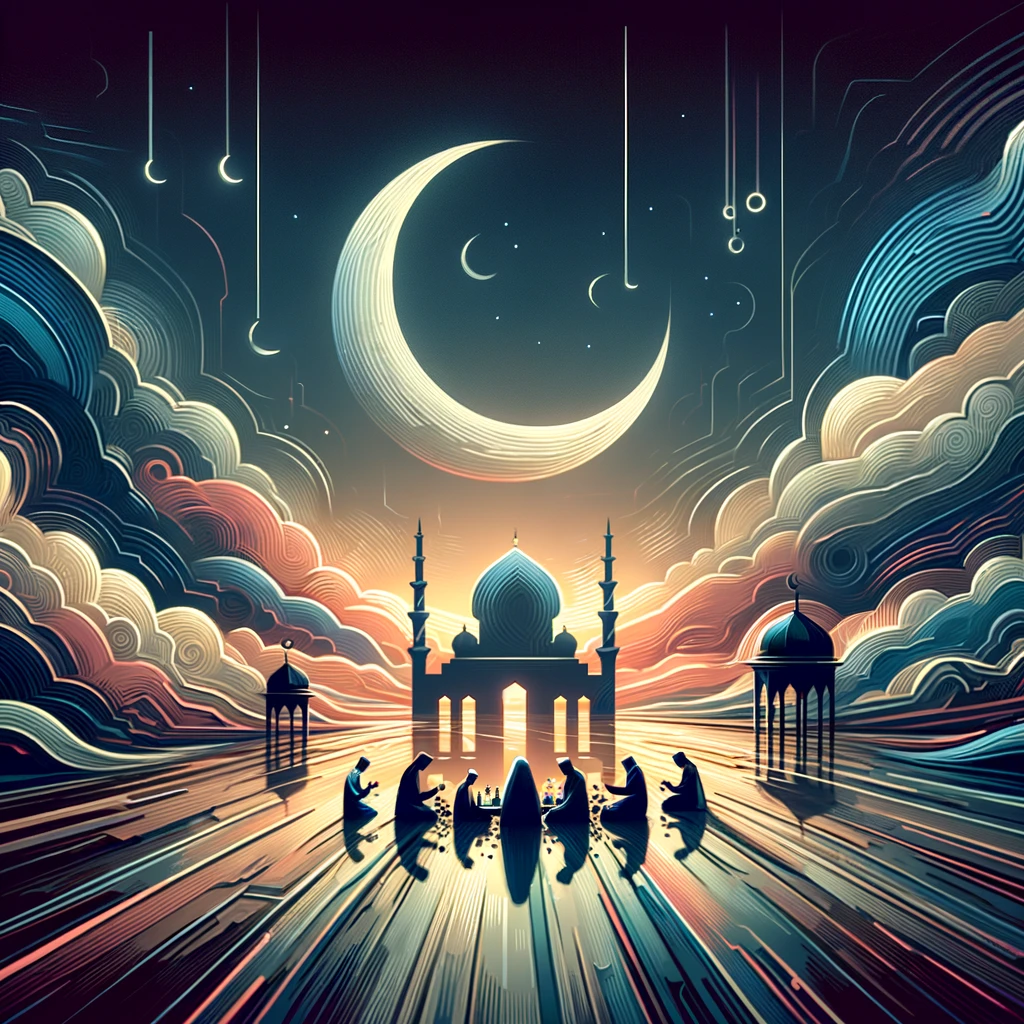
Hajj (pilgrimage to Mecca)
The Hajj, a pilgrimage to Mecca, is the fifth pillar of Islam and a once-in-a-lifetime obligation for those who are physically and financially able to undertake it. Performing the Hajj takes place during the Islamic month of Dhu al-Hijjah and involves a series of rituals including circling the Kaaba, walking between the hills of Safa and Marwah, and standing on the Plain of Arafat. The Hajj commemorates the trials of Ibrahim (Abraham) and his family, symbolizing unity among Muslims and their submission to Allah. The culmination of this spiritual journey is a profound experience, reinforcing a Muslim’s faith and sense of belonging to a global community.

Beliefs in Islam
Central to Islamic belief are the concepts of Tawheed (the oneness of God), the prophethood of Muhammad, and the importance of the Quran as God’s final revelation to humanity. Muslims also believe in angels, the Day of Judgment, divine predestination, and the afterlife. These beliefs shape a Muslim’s spirituality and actions in the world.
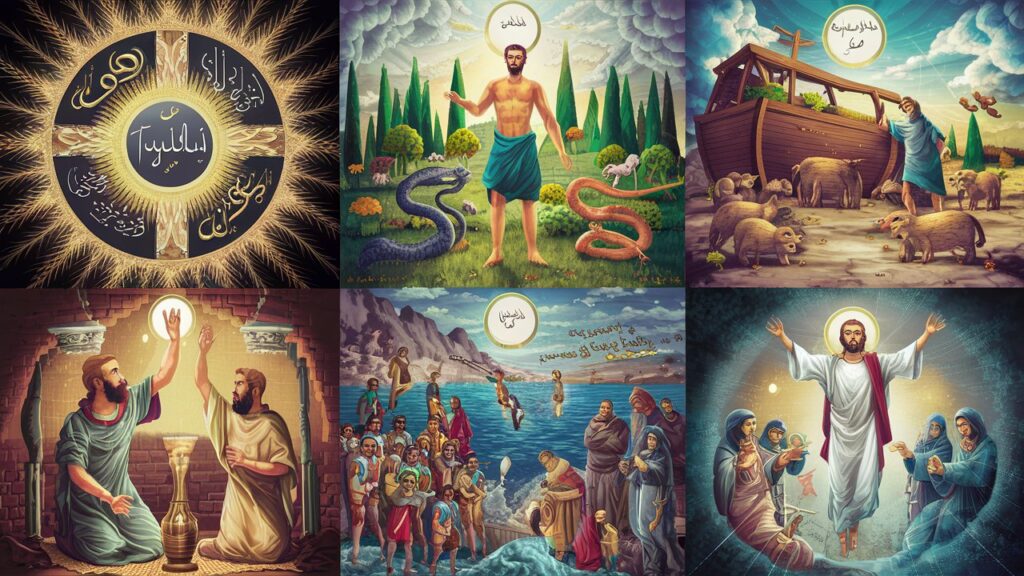
Islamic Practices
Islamic practices are designed to strengthen the spiritual aspect of a Muslim’s life and include regular prayers, fasting, charity, and pilgrimage. These practices are meant to foster a sense of community and personal responsibility towards God and society, reinforcing the moral and ethical principles Islam advocates.
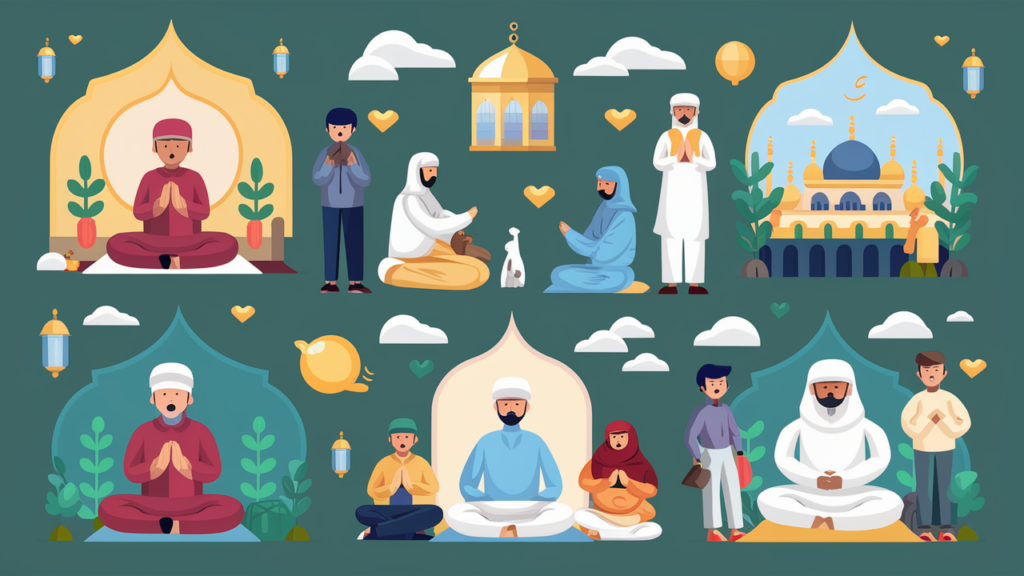
Islamic Art and Architecture
Islamic art and architecture are renowned for their vibrant geometric patterns, intricate calligraphy, and sophisticated designs that reflect the cultural richness of the Islamic world. Islamic art often avoids the depiction of human and animal forms, focusing instead on abstract and decorative motifs that exemplify Islamic principles of unity and order. Iconic examples include the majestic mosques and palaces, adorned with elaborate arabesques and calligraphy.
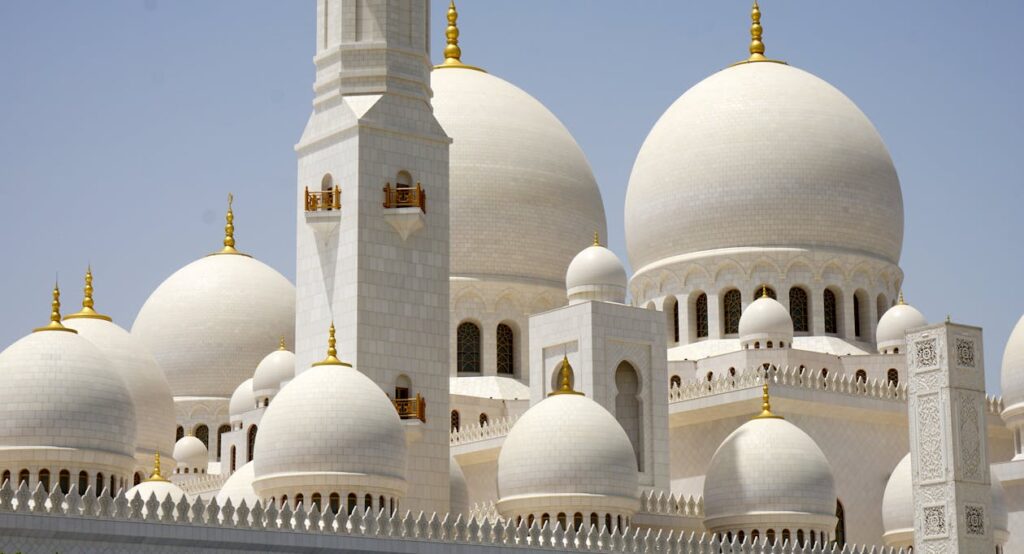
Islamic Holidays and Festivals
Eid al-Fitr and Eid al-Adha are two of the most significant Islamic holidays, celebrated with prayer, feasting, and charity. Eid al-Fitr marks the end of Ramadan, the holy month of fasting, while Eid al-Adha commemorates the willingness of Ibrahim (Abraham) to sacrifice his son in obedience to God, highlighting themes of faith, sacrifice, and community.
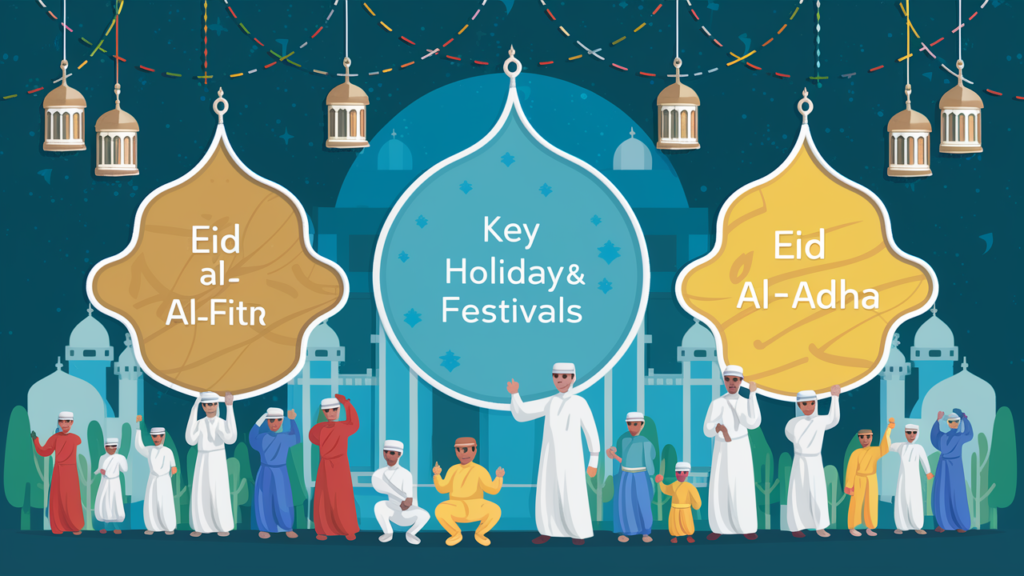
Islamic Ethics and Morality
Islamic ethics and morality are deeply interwoven with the fabric of the faith, emphasizing values such as justice, compassion, honesty, and respect. The Quran and Hadith (sayings and actions of Prophet Muhammad) serve as primary sources guiding Muslims in ethical conduct, aiming to cultivate individuals and societies that live in peace and harmony with God’s creation.
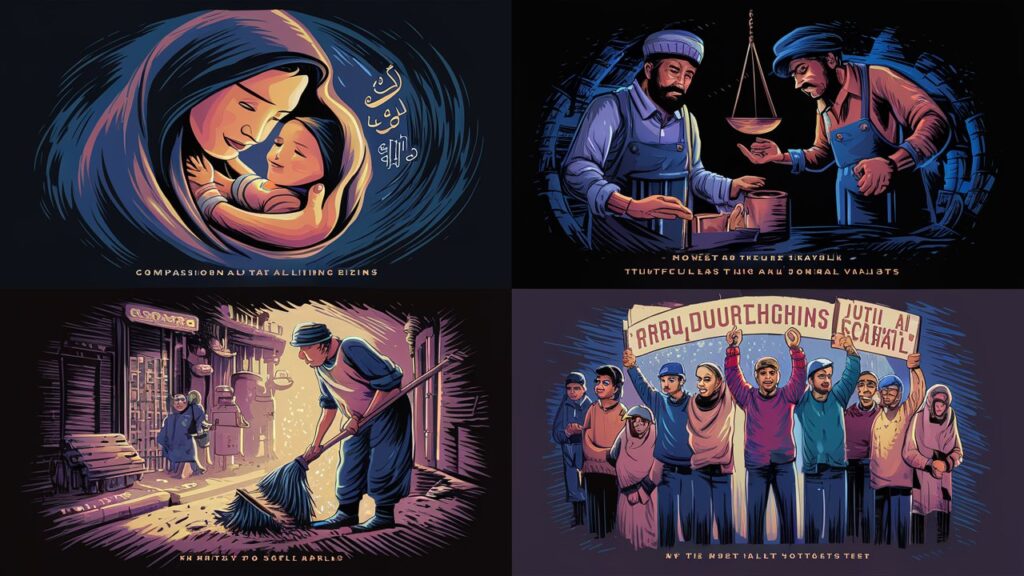
Common Misconceptions about Islam
Many misconceptions about Islam stem from cultural practices not rooted in the religion itself or from the actions of a minority of Muslims. Common misunderstandings include the roles of women in Islam, the nature of jihad, and Islam’s compatibility with peace and other religions. Clearing these misconceptions requires a nuanced understanding of Islamic teachings and the diverse ways Muslims live out their faith.
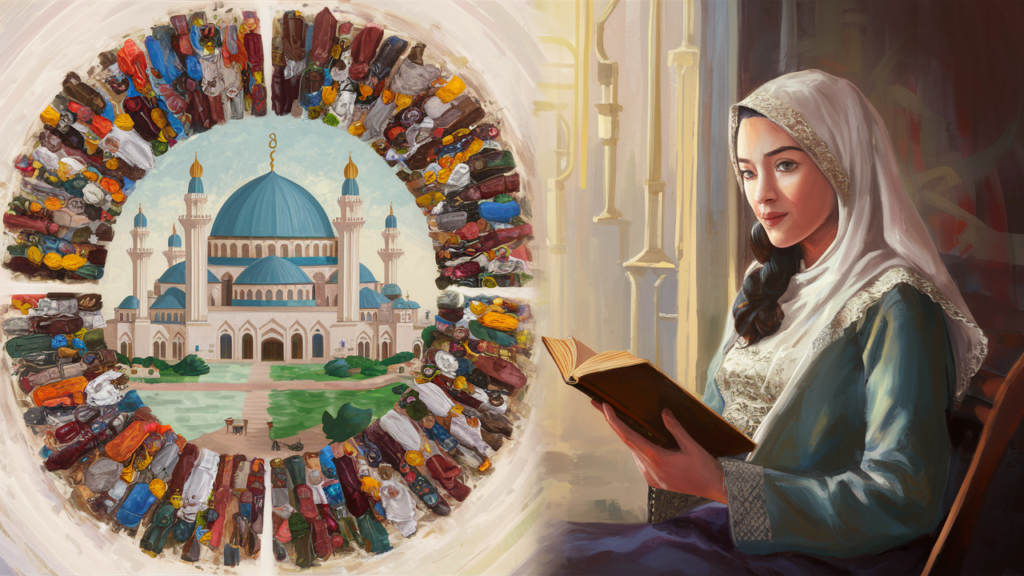
Islamic Diversity
Islam encompasses a wide range of cultures, ethnicities, and traditions across the globe. From the Middle East to Southeast Asia, Africa to Europe and America, the Islamic faith is practiced in diverse ways, reflecting the cultural contexts of its adherents while maintaining the core beliefs and practices that unite Muslims worldwide.
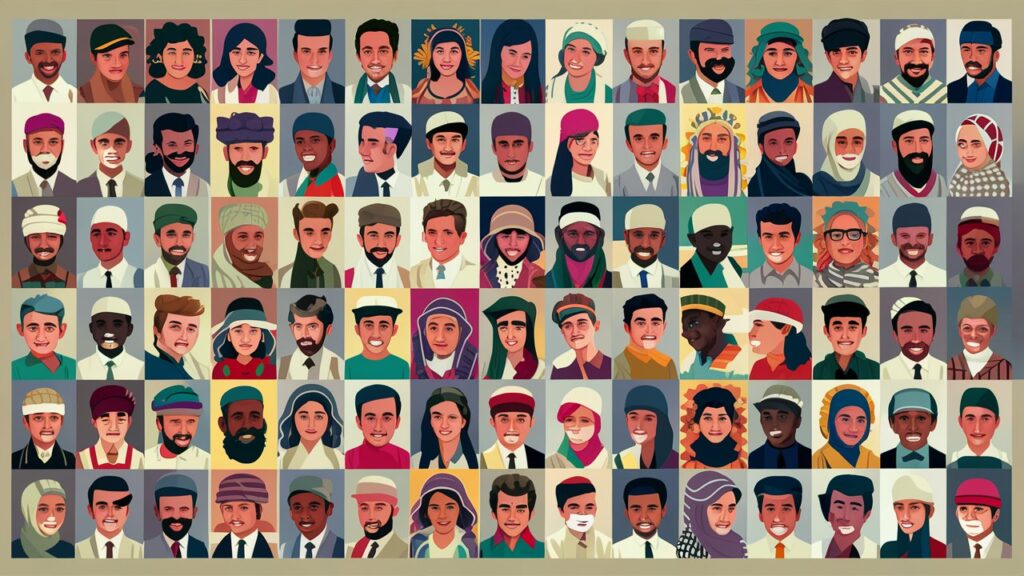
Contemporary Issues and Islam
Today, Islam intersects with numerous contemporary issues, including politics, science, gender, and interfaith relations. Muslims are actively engaged in dialogues about modernity, tradition, and the ways in which Islamic principles apply to current global challenges. These discussions continue to shape the evolving relationship between Islam and the modern world, demonstrating the dynamic nature of this global faith.
